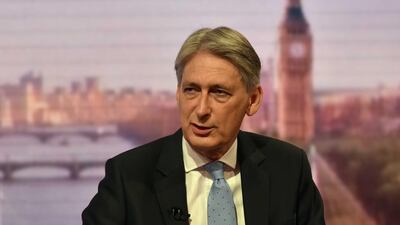Britain’s chancellor Philip Hammond has conceded that businesses are holding off from investing in the UK because of uncertainty about Brexit and its impact.
"It is absolutely clear businesses where they have discretion over investment, where they can hold off, are doing so - you can understand why.
"They are waiting for more clarity about what the future relationship with Europe will look like," he told the BBC’s political programme, The Andrew Marr Show.
His comments come the day before the UK Brexit minister David Davis is due to engage in the second round of Brexit negotiations taking place in Brussels.
A Confederation of British Industry (CBI) survey suggested that 42 per cent of UK firms believe Brexit has hurt their investment plans.
The CBI has said it is important for the government to quickly secure a future EU trade deal.
In the UK manufacturing and industrial output are down, wages are stagnating, inflation is rising and GDP growth is slackening. The once-booming UK housing market is also struggling, with prices in central London falling over the past year.
Some experts predicted that Britain would face an instant economic meltdown if the Brexit vote one. Although the UK avoided this, many believe it could still happen if no trade deal between the UK and Europe is achieved by the end of the negotiation period in March 2019.
Mr Hammond believes government ministers were becoming increasingly in favour of the need for transitional arrangements to reduce disruption during the process of Britain leaving the EU. A transitional arrangement, something that many in the UK see as a “soft Brexit”, could potentially take two years.
"Five weeks ago the idea of a transition period was quite a new concept, I think now you would find that pretty much everybody around the cabinet table accepts that there will be some kind of transition," he told the BBC.
"We're into a real process now with the start of negotiations and I think you'll find the cabinet rallying around a position that maximises our negotiating leverage and gets the best possible deal for Britain."

